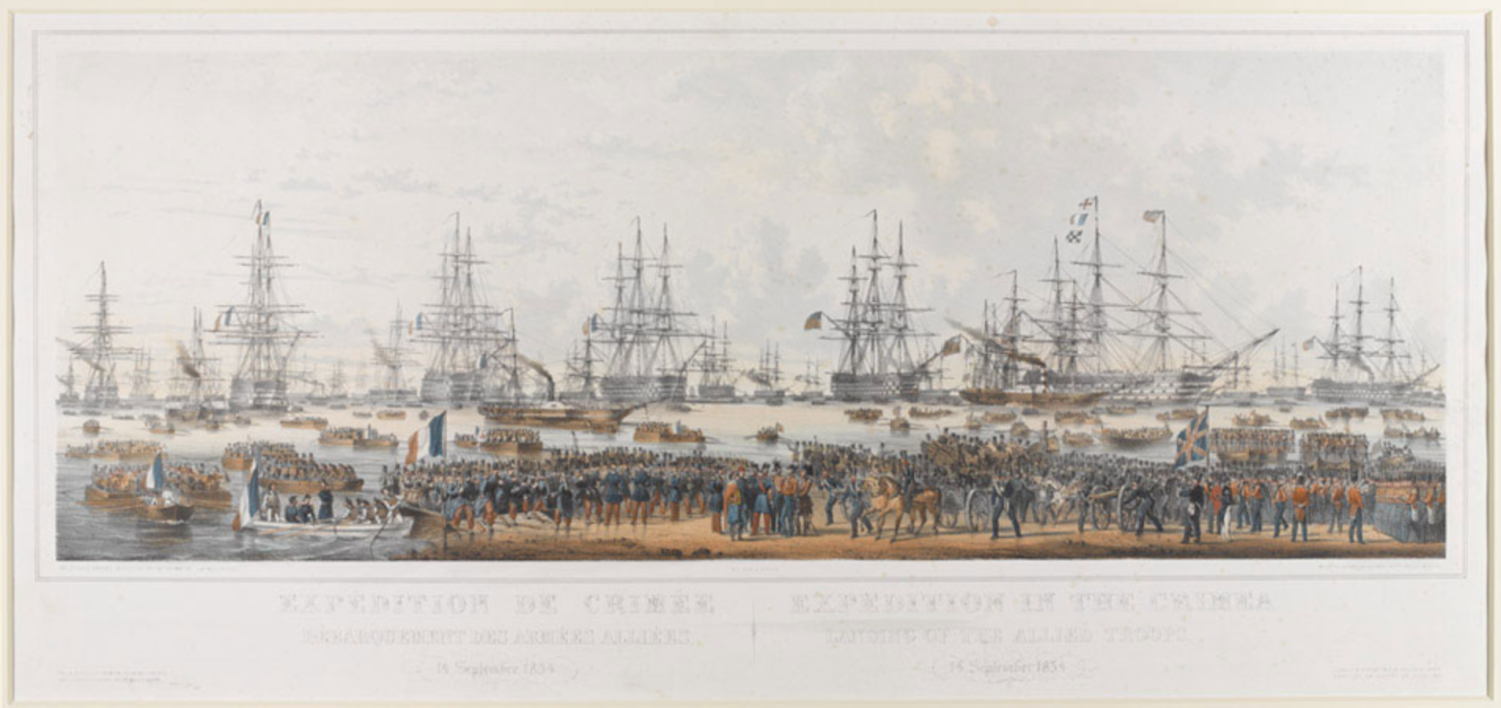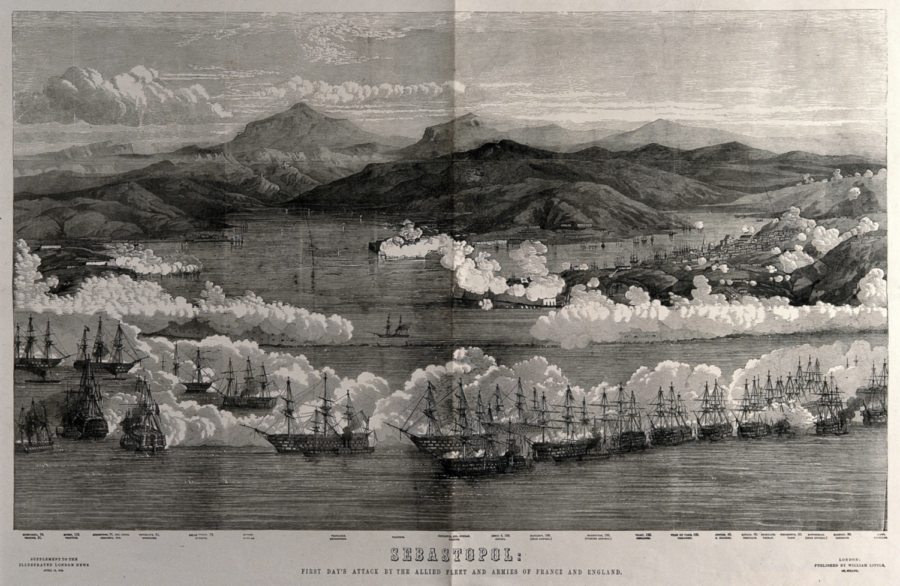This Week in History: March 28th & 30th
Crimean War: a blazing battle in and around the harbor at Sevastopol, details of the French and English ships are given.
Today, exactly one hundred and sixty-eight years ago, both Britain and France declared war on Russia, escalating the Crimean War (1853 – 1856), a conflict that pitted Russia against major powers at the time. These states included the Ottoman Empire, France, and Britain, and later the Italian kingdom of Sardinia. A decline in Ottoman strength throughout the century resulted in a power vacuum forming. With tsar Nicholas I declaring the Ottoman Empire the “sick man” of Europe, he aimed to move into areas of the Middle East and expand Russian influence. Additionally, strong religious tensions over access to sacred sites complicated tensions between the Catholic French, Orthodox Russians, and Muslim Ottomans. In October 1853, fighting started between the Ottomans and Russians, with the Russians dominating at the Battle of Sinope on the coast of the Black Sea. On March 28 1854, due to concerns regarding Russian Expansionism and an upset of the balance of power, as well as trade interests, Britain and France declared war against Russia, joining on the Ottoman side. The fighting ended up concentrated in Crimea, with the Allies focusing on Sevastopol. Ultimately, this long and bloody war had complications and mistakes from both sides, drawing out the war and leading to a higher death toll. Russian forces continually suffered from a lack of effective transportation, supplies, and reinforcements. Ultimately, battered by Allied troops and facing the potential threat of Austrian involvement, Russian resolve gave out and Alexander II surrendered. The following Treaty of Paris, signed on March 30, 1856, returning seized territory back to Ottoman hands. With a death toll exceeding half a million, the Crimean War stands as one of the largest and bloodiest conflicts in Europe after the Napoleonic Wars ending in 1815 and before the start of the First World War in 1914. Russo-Ottoman tensions continued into the Russo-Ottoman war of 1877 and the two Empire fought on opposing sides in World War I, a conflict neither empire survived.

Anant Srinivasan is a senior at Wilton High School and a Managing Editor for the Forum. His interests range from programming to history and politics, and he is eager to share his writing with the Wilton community.

